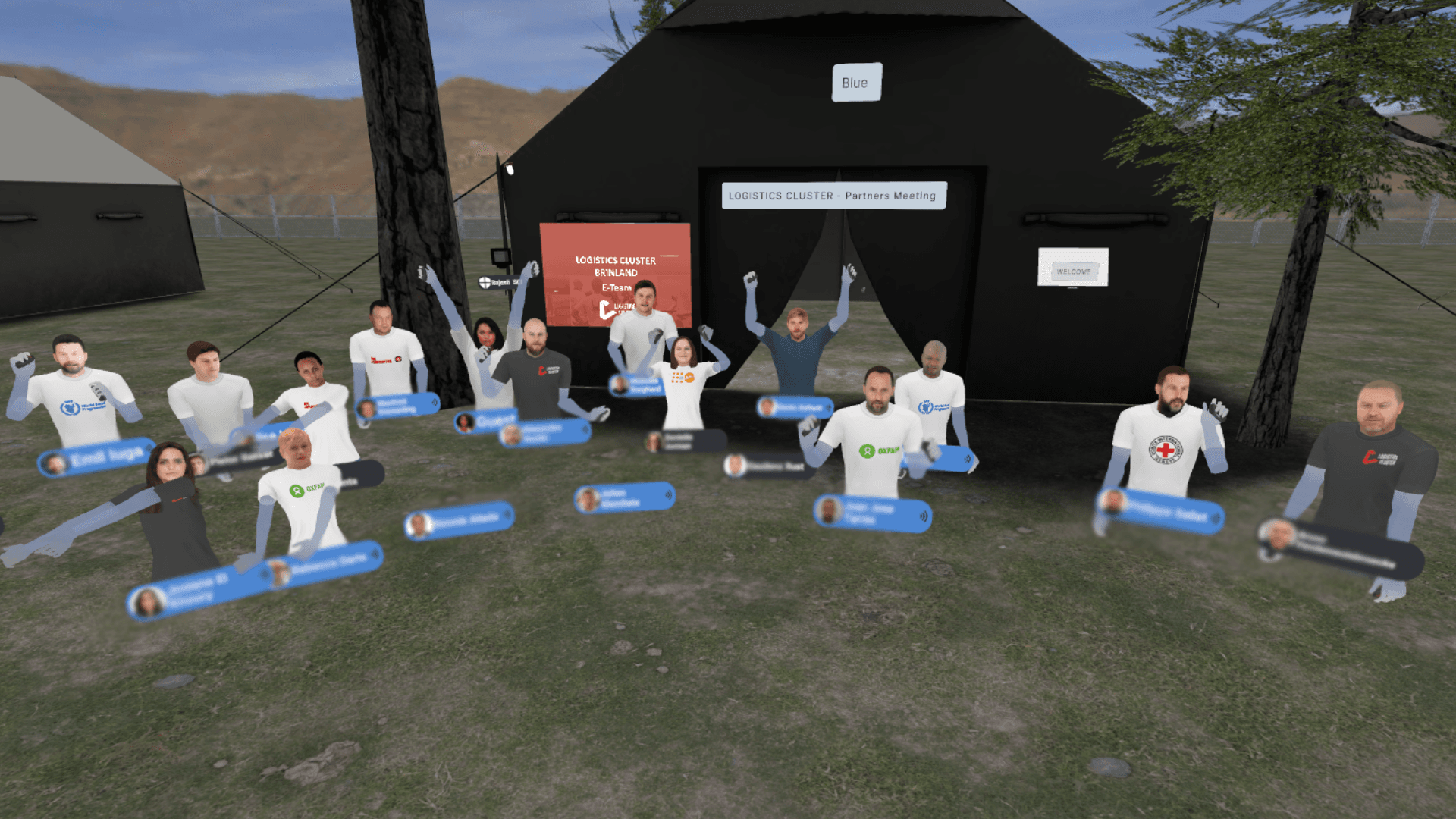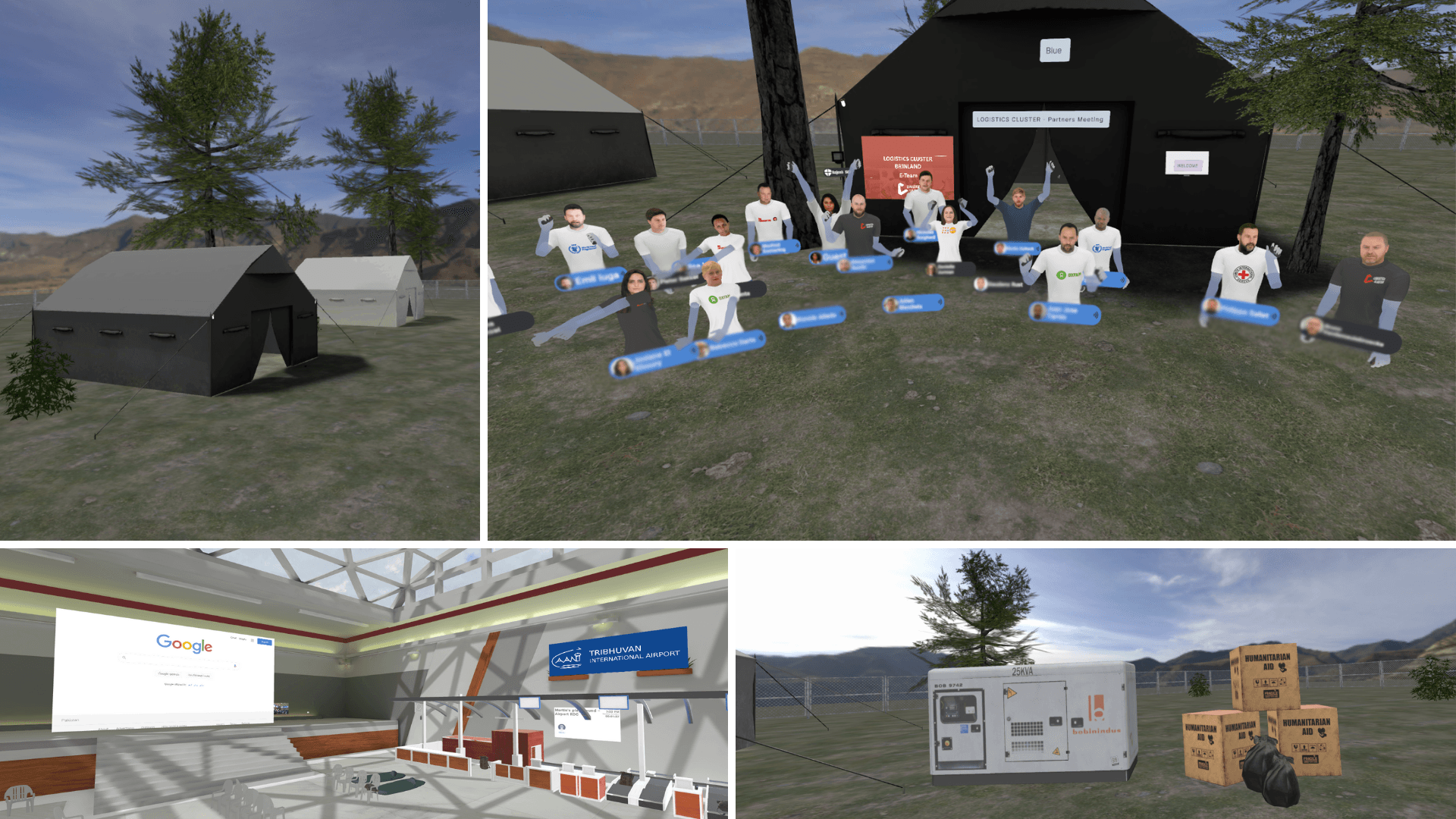Global Logistics Cluster Emergency simulation trainings: An immersive learning experience with Arthur

During the Covid-19 pandemic, the challenge was to train people for emergency responses as effectively as traditional training simulations do. Standard video-conferencing solutions were not able to address the issue and that is where Arthur stepped in to make the replication of the visual part of the training, such as a basecamp, possible. The variety of the VR tools, 3D models, and spatial audio contributed to realistically recreate the experience of a face-to-face meeting.
A 7-day training on emergency response management was conducted in partnership with the Global Logistics Cluster and the International Training Centre of the International Labour Organisation (ITCILO). Around 30 participants from different countries ranging from Thailand to Panama were together in a VR training simulation. The training was a full simulation of the early, continuous days of an unexpected onset emergency with long days and short nights. The objective was to prepare and enable skilled logisticians to be deployed as immediate operational logistics surge capacity. Those trainings contributed to reimagining the hybrid learning of humanitarians in case of emergencies.
In an immersive VR space, participants go through role plays for a realistic experience. Most of the participants found the VR program very similar to traditional on-site training. When compared to video conferencing or other hybrid training solutions, participants were enthusiastic about the full immersion experience, the realism of the location, and functionality that the Arthur technology provided.
The success of the training opened further use cases for the such as team briefings, multi-agency simulation, bilateral meetings, and presentations.
“As the humanitarian organization dealing with emergencies, we have to react and adapt fast. That also includes training and development of our personnel. We first used VR during the time when face-to-face trainings were on hold. However, after a successful simulation in immersive VR environments, it proved to have positive results and feedback.” , Guillermo Cuervo, Training Officer, Global Logistics Cluster Support Team / WFP.
